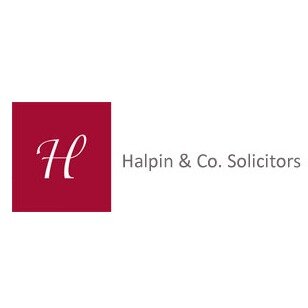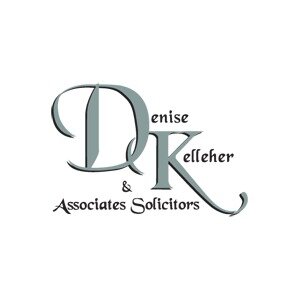Best Sexual Harassment Lawyers in Cork
Share your needs with us, get contacted by law firms.
Free. Takes 2 min.
List of the best lawyers in Cork, Ireland
About Sexual Harassment Law in Cork, Ireland
Sexual harassment is a prevalent issue that affects numerous individuals in various settings, including the workplace, educational institutions, and public spaces. In Cork, Ireland, sexual harassment is defined as any form of unwanted verbal, non-verbal, or physical conduct of a sexual nature that violates a person's dignity or creates an intimidating, hostile, degrading, humiliating, or offensive environment. The laws in Cork aim to protect victims and ensure that perpetrators are held accountable for their actions.
Why You May Need a Lawyer
There are several situations where you may require legal help if you are a victim of sexual harassment or if you need to defend yourself against a claim of sexual harassment:
- If you need assistance in understanding your rights and the legal options available to you.
- When you require help in filing a complaint or lawsuit against the perpetrator.
- If you need to gather evidence or witness statements to support your case.
- If you are facing retaliatory actions from your employer or colleagues after reporting harassment.
- If you need representation during mediation or court proceedings.
- If you require advice on workplace policies and preventive measures to protect yourself or your employees from harassment.
Local Laws Overview
The key aspects of local laws in Cork, Ireland, that are particularly relevant to sexual harassment include:
- Employment Equality Acts 1998-2015: These acts prohibit sexual harassment and provide a framework for filing complaints and seeking redress in the workplace.
- Síle de Valera's Code of Practice: This code outlines the responsibilities of employers in preventing and addressing sexual harassment in the workplace.
- Equal Status Acts 2000-2015: These acts extend protection against sexual harassment to include social settings, educational institutions, and services.
- Health and Safety Authority (HSA) Guidelines: These guidelines emphasize the duty of employers to provide a safe working environment, free from harassment and bullying.
Frequently Asked Questions
What constitutes sexual harassment?
Sexual harassment includes any unwanted sexual advances, requests for sexual favors, and other verbal or physical conduct of a sexual nature that violates an individual's dignity or creates an intimidating, hostile, or offensive environment.
How do I file a complaint about sexual harassment?
You can file a complaint with the Workplace Relations Commission (WRC) or relevant authority if the harassment occurs in other settings. Legal advisors can help guide you through this process.
What evidence do I need to support my sexual harassment claim?
Evidence such as emails, text messages, witness statements, and any documented incidents can significantly bolster your case. Keeping a detailed record of the harassment is crucial.
What should I do if I am being sexually harassed at work?
Report the harassment to your HR department or a trusted supervisor as soon as possible. If the issue is not addressed, seek legal advice on further actions you can take.
Can I be fired for reporting sexual harassment?
No, it is illegal for an employer to retaliate against an employee for reporting sexual harassment. If you face retaliation, you may have grounds for further legal action.
How can I protect myself from sexual harassment?
Familiarize yourself with your rights, document any incidents of harassment, and inform a trusted supervisor or HR representative. Seek legal advice if the harassment continues.
Is there a time limit for filing a sexual harassment complaint?
Yes, there are time limits, known as “statute of limitations,” for filing complaints. Typically, you have up to 6 months from the date of the last incident to file a claim, but this can vary depending on the specifics of your case.
What remedies are available if my sexual harassment claim is successful?
Remedies can include compensation for emotional distress and financial loss, reinstatement to your position, and other corrective actions taken by the employer.
Do sexual harassment laws apply to small businesses?
Yes, all employers are required to comply with sexual harassment laws, regardless of the size of the business.
Can I bring a friend or family member for support when meeting my lawyer?
Yes, you can bring a trusted friend or family member for support during meetings with your lawyer, especially if it helps you feel more comfortable.
Additional Resources
There are several resources available to those seeking assistance with sexual harassment issues:
- Workplace Relations Commission (WRC)
- Health and Safety Authority (HSA)
- National Women's Council of Ireland (NWCI)
- Rape Crisis Network Ireland (RCNI)
- Citizens Information Services
- Equality Authority
Next Steps
If you believe you need legal assistance regarding a sexual harassment issue, consider taking the following steps:
- Document all incidents of sexual harassment in detail, including dates, times, locations, and any witnesses.
- Report the harassment to your HR department or immediate supervisor, if applicable.
- Seek advice from a qualified lawyer specializing in sexual harassment to understand your rights and legal options.
- File a formal complaint with the appropriate regulatory body, such as the Workplace Relations Commission (WRC).
- Consider seeking support from dedicated organizations and resources, such as the Rape Crisis Network Ireland (RCNI) or the National Women's Council of Ireland (NWCI).
Lawzana helps you find the best lawyers and law firms in Cork through a curated and pre-screened list of qualified legal professionals. Our platform offers rankings and detailed profiles of attorneys and law firms, allowing you to compare based on practice areas, including Sexual Harassment, experience, and client feedback.
Each profile includes a description of the firm's areas of practice, client reviews, team members and partners, year of establishment, spoken languages, office locations, contact information, social media presence, and any published articles or resources. Most firms on our platform speak English and are experienced in both local and international legal matters.
Get a quote from top-rated law firms in Cork, Ireland — quickly, securely, and without unnecessary hassle.
Disclaimer:
The information provided on this page is for general informational purposes only and does not constitute legal advice. While we strive to ensure the accuracy and relevance of the content, legal information may change over time, and interpretations of the law can vary. You should always consult with a qualified legal professional for advice specific to your situation.
We disclaim all liability for actions taken or not taken based on the content of this page. If you believe any information is incorrect or outdated, please contact us, and we will review and update it where appropriate.
















